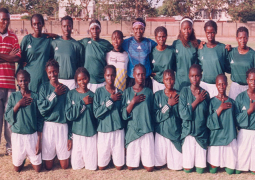The
Malaria is a particular problem, and a major one in areas of Asia, Africa, and Central and
Over the years, The Gambia has registered significant strides in the control and prevention of malaria in the country, through the change of treatment policy and the provision of the anti-malarial drug called Coartem in all public health facilities, as well as an increased community mobilisation and participation to prevent malaria.
However, despite all the gains registered in the fight against malaria, it is clear that much more needs to be done to ensure a malaria-free society.
We hope and pray that the gains registered in the campaign to control malaria will continue, and that with the help of the media we can count out malaria once and for all.
Malaria is a major killer-disease, and thus deserves our respect. Research revealed that, every year, between 350 and 500 million people get infected, and one million die, as a result of malaria, predominantly in the sub-Saharan
Yet many ignore the need to take anti-malarial medication, or fail to take it properly.
Specifically, more attention must be focused on monitoring and evaluation of malaria policies at all levels to ensure proper implementation of programmes, identify problems, trends or constraints, evaluate the impact of interventions, and ensure accountability.
Partnerships with faith-based and community organizations are especially valuable to malaria control efforts because of the credibility these groups have within their communities, their ability to reach the grassroots level, and their capacity to mobilize significant numbers of volunteers.
Malaria is still a major public health problem in The Gambia, accounting for over 40% of hospital visits and being the leading cause of morbidity and mortality.
As we celebrate World Malaria Day, we should take stock of our past achievements in the fight against malaria, and seek new ways of eradicating it from our society.
The day gives us an opportunity, especially we in
This will present a chance for all stakeholders to make a difference, and help generate broad gains in multiple areas of health and human development.
In our view, more attention should be given to the Abuja Declaration, which was passed by 53 African heads of state in April 2000, to intensify their efforts in the fight against malaria.
The declaration should not be left like that. The battle should be intensified to save the lives of many African children and women.
With this, and a host of others in place, we can surely count out malaria from our midst.
“Right now there is about as much global interest in malaria as I’ve ever seen. Can it be sustained? I don’t know. But it will need to be if we want to get anywhere in this fight.”
Brian Greenwood



